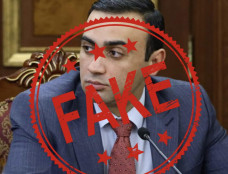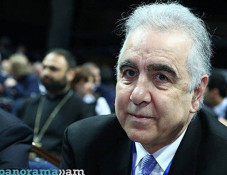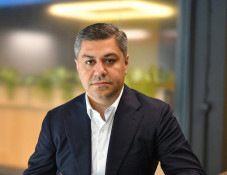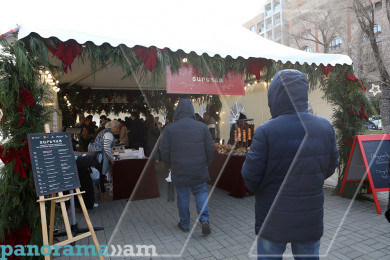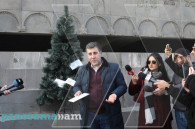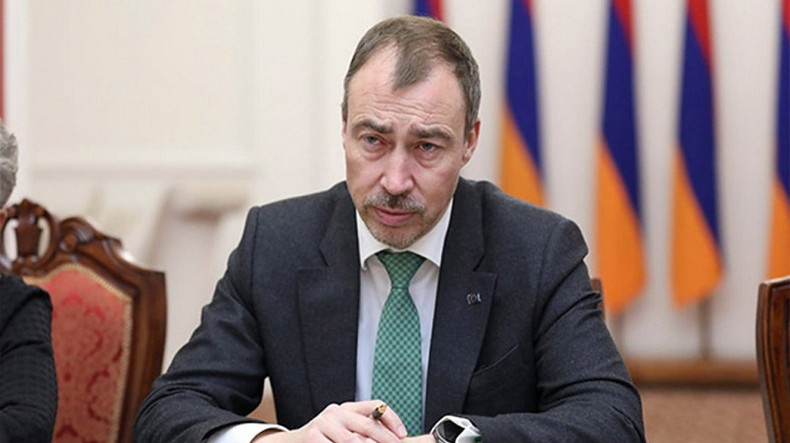
EU envoy: It's quite logical for Armenia to control any road through its territory
The EU's special representative for the South Caucasus and the crisis in Georgia, Toivo Klaar, has expressed support to the Armenian government’s Crossroads of Peace project.
In an interview with Armenpress Brussels correspondent, Klaar said that there ought to be no issue of extraterritoriality concerning the connections. He said that it is quite logical that any road, any railway that goes through Armenian territory is controlled by Armenia.
The EU special envoy also spoke about the possible peace treaty between Armenia and Azerbaijan and the guaranteed right to return of Nagorno-Karabakh Armenians.
"First of all, I think that, a few months ago [in May 2023], in Moscow, President Aliyev very clearly said publicly on television, in a meeting that they had with Prime Minister Pashinyan in the presence of President Putin, that naming it a ‘corridor’ doesn't imply extra-territoriality. President Aliyev has said – also on other occasions in smaller settings – that this does not imply extra-territoriality. Yes, calling it a corridor, as you know, we say transport corridors in reference to different corridors that we have in Europe and we never imply extra-territoriality. So, obviously, from our perspective, it is quite logical that any road, any railway that goes through Armenian territory is controlled by Armenia, or any road or railway that goes through Azerbaijani territory or goes through, I don't know, German territory, is controlled by the country in question. So, that is absolutely the one and only logical arrangement. And what is also very legitimate is, for instance, in this case Azerbaijan, to want to have an assurance that Azerbaijani citizens and cargo crossing Armenian territory will be safe and secure. That is perfectly logical and normal. But how that is being done in terms of how it is ensured is the responsibility of the Armenian authorities," Klaar said.
"I think the vision of Prime Minister Pashinyan of road and railway connections uniting countries is something we absolutely share. We absolutely share that vision of an open South Caucasus where railway and road connections are open, and countries are reconnected in a way that they were at the end of the Soviet period and even more so, because also the road and railway connections across to Türkiye, and naturally Iran, which is already the case, but also to Türkiye, should also be open. That is how we see the future, absolutely, our vision of a South Caucasus at peace is one where these transport connections are all open again and there is trade, there is people travelling across the various frontiers," he added.
Newsfeed
Videos










